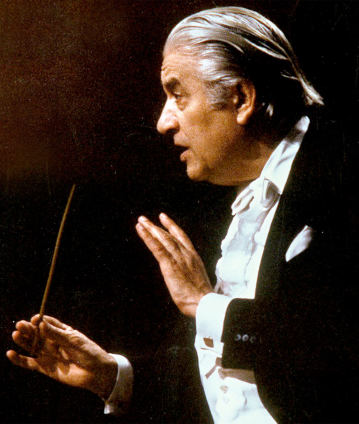Celibidache’s return to the Berliner Philharmoniker after 38 years

In 1946, in the dramatic years of post-war Germany, the young Sergiu Celibidache was appointed conductor of the Berliner Philharmoniker where he remained for six years; an appointment which proved to be a sensational stroke of good fortune. After 38 long years, he returned to his former domain. It was an emotional reunion, which culminated in a haunting performance of Bruckner’s Seventh Symphony: a truly great moment in the history of the Berliner Philharmoniker.
“The return of the prodigal father,” the Frankfurter Allgemeine Zeitung headed its rave review of the concert that took place in the Schauspielhaus in Berlin on 31 March 1992, when Sergiu Celibidache returned after a thirty-eight-year absence to conduct Bruckner’s Seventh Symphony with the Berliner Philharmoniker. The reviewer described the occasion as “one of the truly great moments in music”, a point confirmed not only by his many colleagues but also by the audience’s standing ovation.
Celibidache and the Philharmoniker worked together successfully for six years in the post-war period – before falling out in 1954: The orchestra chose Karajan as Furtwängler’s successor following the latter’s death. Celibidache announced that he would never again conduct the orchestra, and it required a personal invitation from Germany’s president at the time, Richard von Weizsäcker, to persuade him to change his mind and conduct two benefit concerts. Conductor and orchestra met again at their first rehearsal on the stage of the city’s Schauspielhaus. The atmosphere was electric, marked, as it was, by emotion and perhaps even remorse on the part of those musicians who had been members of the orchestra in 1954. Mixed with these feelings were expectant curiosity and even cautious scepticism on the part of players who were now performing for the very first time under Celibidache.
They spent more than thirty minutes working in detail on only the first few bars of the symphony, but by the end of that time it was already clear that Celibidache was one of the leading Brucknerians of all time. Working with other orchestras, notably the Munich Philharmonic with which he was closely associated for many years, he had evolved a contemplative style of music-making that shed light on every corner of the score, an approach that refused to admit of any compromise even with an exceptional orchestra like the Berliner Philharmoniker. They allowed their actions to be guided by the music, letting what Celibidache himself called “Bruckner’s long phrases play out to their spiritual conclusion so that the end is then the inevitable consequence of the combination of the symphonic conflict and its inherent antinomies”. Both historically and musically, the result was a unique event and one that truly deserved to be captured for posterity in both picture and sound.
© 1992 EuroArts Music International